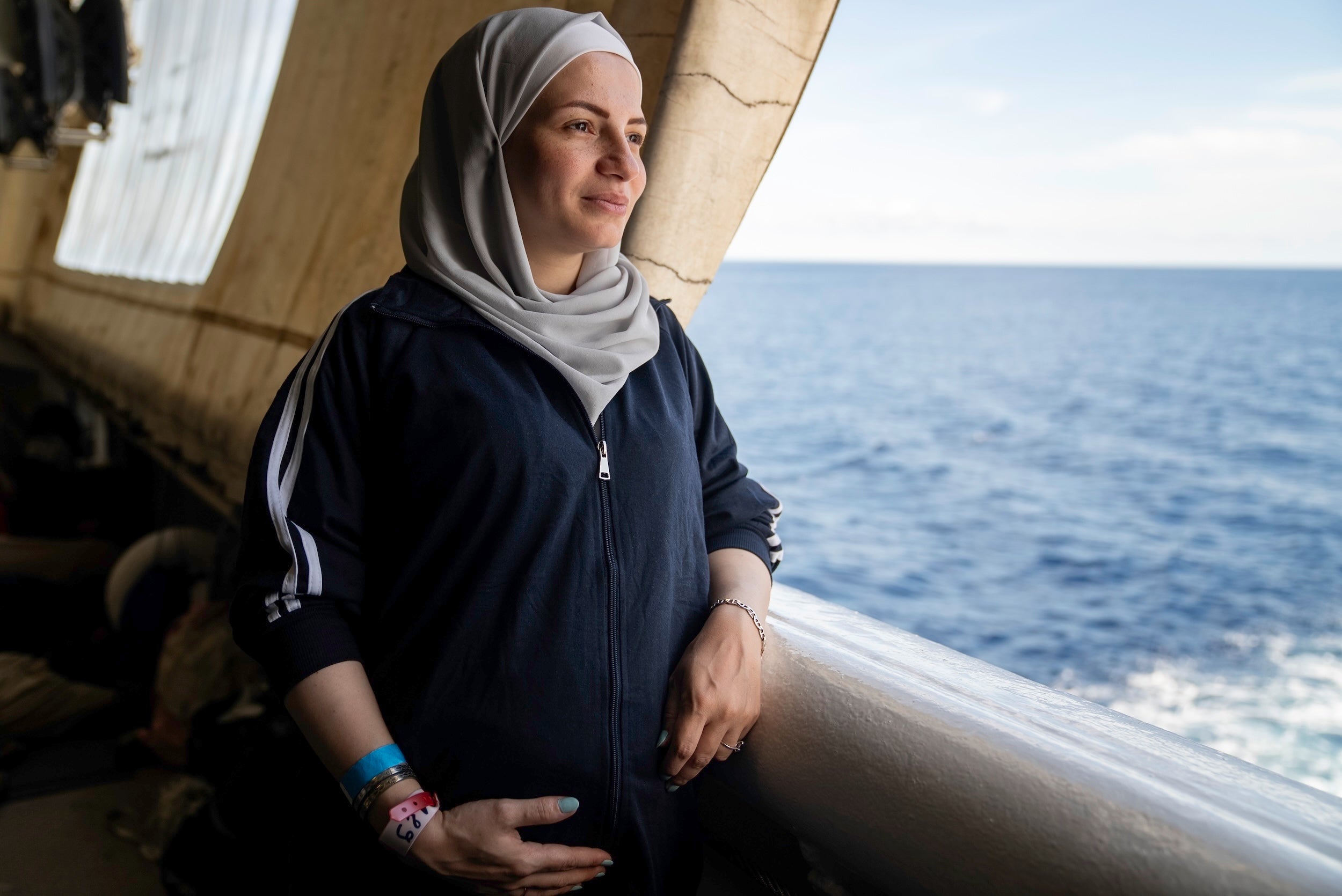(Milan) -The European Union, its member states, and the European Border and Coast Guard Agency Frontex should make saving lives at sea the priority, Human Rights Watch said in a multimedia feature essay published today.
More than 400 people have died or been reported missing in the Mediterranean Sea in the past three months alone. In the same period, more than 3,800 people were forcibly returned to Libya by EU-supported Libyan forces.
"The EU's policy of deterrence by drowning is abhorrent," said Judith Sunderland, associate Europe and Central Asia director at Human Rights Watch. "Now more than ever, the EU should get back to its core values and our shared humanity by ensuring search and rescue at sea and disembarkation in safe places."
Frontex: Act to Save Lives at Sea
Campaign Calls on EU Border and Coast Guard Agency to Act #WithHumanity

The feature essay Ship of Humanity is a first-hand account of one of the last missions of the Geo Barents, the rescue ship operated by the humanitarian organization Médecins Sans Frontières (MSF), in September 2024. In two operations, the MSF team rescued 206 people, mainly from Ethiopia, Eritrea, and Syria, despite the interference of a Libyan patrol boat that at one point threatened to open fire. The Italian authorities ordered the Geo Barents detained at port for 60 days for not complying with orders from Libyan authorities, among other reasons.
In December, MSF announced it would no longer use the Geo Barents, citing Italian laws and policies, including orders to disembark those rescued in distant ports, that make it "impossible to continue with the current operational model." The organization said it would return to search and rescue operations in the Mediterranean as soon as possible.
In-depth interviews with 11 survivors on board the Geo Barents confirmed the brutal treatment of migrants and asylum seekers in Libya and the devastating consequences of Italian and EU support for Libyan coast guard forces. Everyone interviewed described some form of abuse in Libya, ranging from extortion to forced labor, torture, and rape, in official Libyan detention centers nominally under the state, or in smuggler captivity. Many of the people interviewed had been detained more than once following interception at sea by Libyan and Tunisian forces.
The EU has largely abdicated its responsibility to ensure search and rescue in the Mediterranean. Despite overwhelming evidence of horrific detention and abuse of migrants in Libya, the EU supports the Libyan forces' efforts to detect boats and pull people back, notably through aerial surveillance by Frontex over the central Mediterranean. It is now replicating its abusive model of cooperation with Libya with other countries like Tunisia and Lebanon, where people face abuse, including the risk of expulsion despite the risk of further harm.
Over the last decade, over 31,300 people have died or been reported missing in the Mediterranean, according to the International Organization for Migration, with at least 2,300 dead or missing in 2024. December was the deadliest month last year, with at least 309 people recorded dead or missing. Nearly 100 people, including 8 children, have disappeared at sea since the beginning of 2025.
In October 2024, Human Rights Watch opened the #WithHumanity campaign calling on Frontex to take concrete steps to use its technology and expertise to save lives. The agency should ensure that the location of boats in distress sighted by Frontex aircraft is transmitted systematically to rescue ships in the area operated by nongovernmental groups and issue more frequent emergency alerts based on a broad definition of distress, Human Rights Watch said. Frontex aircraft should also monitor distress cases and provide assistance when needed.
"The people on these dangerous journeys are fleeing hardship and abuse, but they are also moving towards a future they want to build," Sunderland said. "Given a fair chance, most of those who arrive and stay will help themselves, their families, and their new communities."







